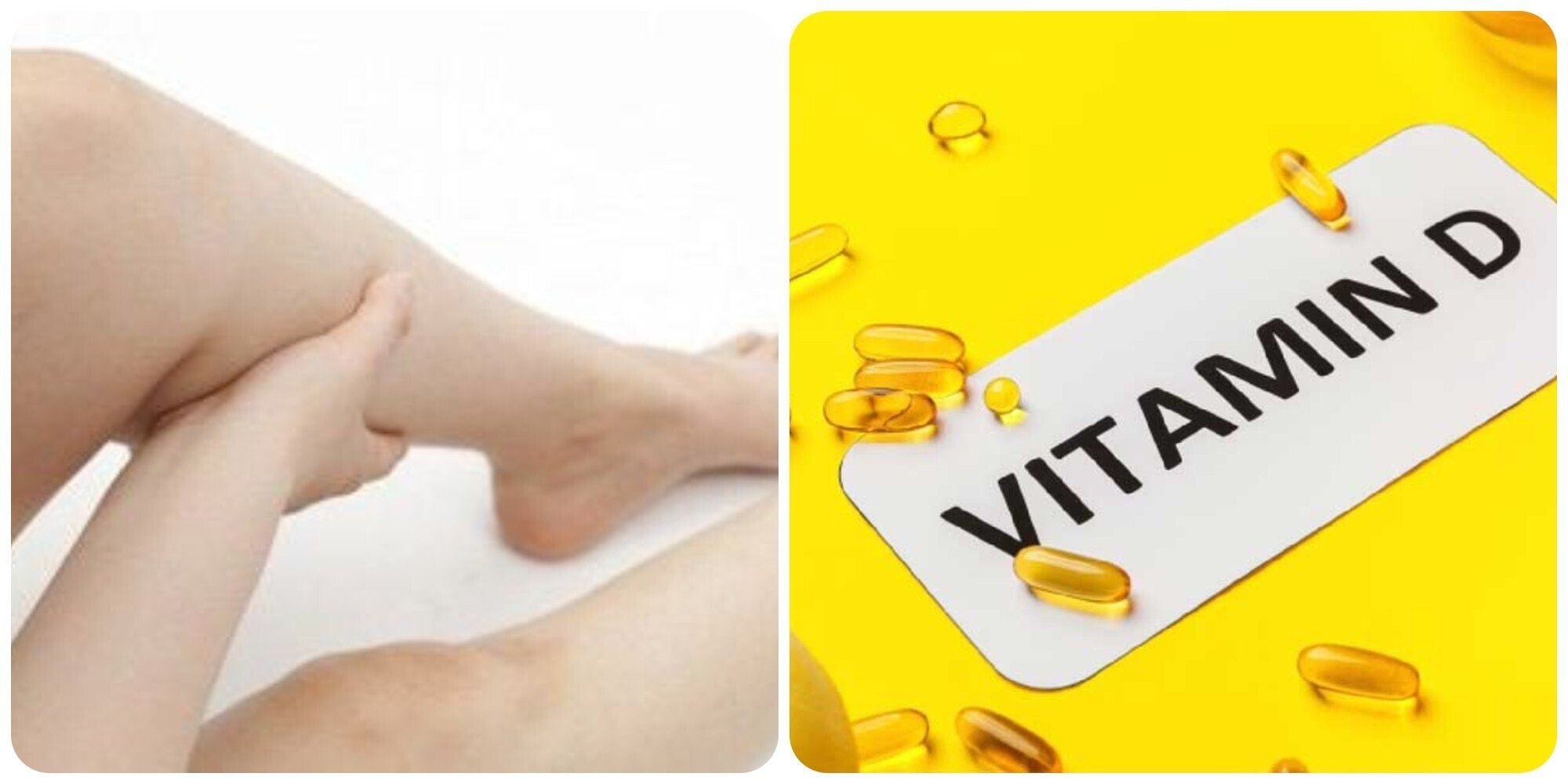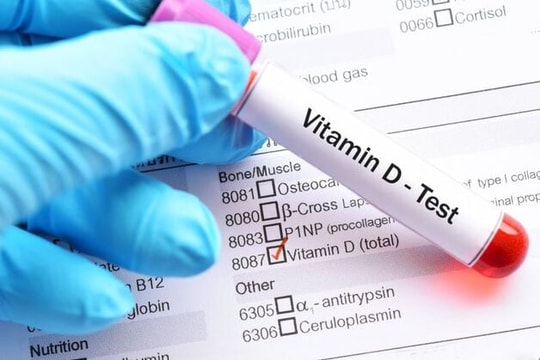8 signs of vitamin D deficiency in adults
Vitamin D provides many essential benefits for bones, muscles, nerves and the immune system. When there is a lack of vitamin D, the body will experience instability.
The role of Vitamin D in the body
An article on the Medlatec General Hospital website with medical consultation by Master, Doctor Tran Thi Kim Ngoc said that vitamin D is a fat-soluble nutrient, the main source of which comes from the outside and plays a very important role in the body.
Vitamin D comes in two main forms:
One is Vitamin D2 or ergocalciferol.
The second is Vitamin D3 or cholecalciferol.
Both nutrients can be supplemented through daily foods. As for Vitamin D3, the body can also synthesize this component from sunlight when exposed to the skin.
This nutritional component also plays many roles in the body's physiological mechanisms such as:
Calcium absorption:Vitamin D helps the body absorb and metabolize calcium through the intestines, distributing essential nutrients throughout the body. At the same time, it plays a role in calcium reabsorption. In addition, Vitamin D also helps regulate and stabilize calcium levels in the blood.
Protecting bone and tooth structure:Calcium plays a major role in bone and teeth structure, so Vitamin D is an essential nutrient to ensure calcium supply for stable body development.
For hormones:Affects the production and action of insulin and thyroid hormones.
Contribute to protecting the body:Helps the immune system to be stronger, fight against agents such as viruses, bacteria, and prevent some types of flu.
Signs of vitamin D deficiency in adults
Thanh Nien newspaper quoted the US health website Healthline as saying that people at high risk of vitamin D deficiency are those who have little exposure to sunlight, such as those who work indoors all day, live in areas with little sunlight or often cover up too much when going out. In addition, people with dark skin, obesity, and liver and kidney disease are also susceptible to vitamin D deficiency.

Here are the signs of vitamin D deficiency in adults:
Chronic fatigue
Feeling tired after a day's work is normal, but if you always feel tired, even exhausted, despite getting enough rest, it could be a sign of vitamin D deficiency.
Many studies show that vitamin D plays an important role in maintaining the body's energy levels. When vitamin D is deficient, the body has difficulty metabolizing energy, leading to feelings of chronic fatigue, weakness, and reduced ability to concentrate.
Muscle and bone pain
Muscle and bone pain is a common symptom of vitamin D deficiency. This symptom is often mistaken for muscle strain or age-related problems. The distinguishing feature is that the pain caused by vitamin D deficiency is persistent and has no known cause.
Vitamin D helps the body absorb calcium, which helps keep bones and muscles strong. A deficiency in this vitamin can cause bones to become brittle, more prone to pain, and even increase the risk of osteoporosis.
Often sick, weakened immunity
Vitamin D plays an important role in activating the immune system, helping the body fight bacteria and viruses. If a person often suffers from colds, persistent coughs or infections, it is very likely that their immune system is weakened due to vitamin D deficiency.
Some studies suggest that getting enough vitamin D may help reduce the risk of respiratory illnesses and infections.
More hair loss than usual
Hair loss is a problem that many people face. The cause can be stress, hormonal changes, chemical use or vitamin D deficiency. Vitamin D helps stimulate hair follicles to grow and maintain hair strength. When the body does not have enough vitamin D, hair can become weak, brittle and thin over time.
To supplement vitamin D, people can sunbathe for 10 to 15 minutes in the morning, before 10 o'clock to avoid the harmful effects of ultraviolet rays. In addition, using supplements, eating foods rich in vitamin D such as salmon, mackerel, sardines, tuna, cod liver oil, mushrooms, egg yolks are also effective ways to supplement this vitamin.
Osteoporosis
As mentioned, vitamin D plays an important role in calcium absorption and bone metabolism. Therefore, supplementing vitamin D and calcium at the same time will help the body absorb it to the maximum.
Low bone mineral density is a sign that bones have lost calcium and other minerals. This puts older adults, especially women, at higher risk of fractures. A study of more than 1,100 middle-aged women who were menopausal or postmenopausal found a strong link between low vitamin D levels and low bone mineral density.
High-dose vitamin D supplements may not improve bone density in vitamin D-deficient women but may be a good strategy to protect bone mass and reduce fracture risk, researchers say.
Muscle pain
The cause of muscle pain is often difficult to determine, however vitamin D deficiency is one potential cause.
Vitamin D receptors are found in nerve cells called nociceptors. Deficiency of this vitamin may also be involved in the body's transmission of pain signals, contributing to chronic pain. Some studies have also noted that high-dose vitamin D supplements may reduce various types of pain in people who are deficient in this vitamin.
Anxiety, depression
VnExpress newspaper quoted Healthline as saying that a review showed that calcidiol (a form of vitamin D) levels were lower in people with anxiety or depression.
Separate studies in pregnant women have shown that adequate vitamin D intake can help reduce symptoms of anxiety, improve sleep quality, and even prevent postpartum depression. Some reviews have found that vitamin D supplements also help reduce symptoms of depression.
Slow wound healing
Slow wound healing after surgery or injury could be a sign that your vitamin D levels are too low. In fact, results from a test-tube study showed that vitamin D increases the production of compounds important for forming new skin, similar to part of the wound healing process.
Vitamin D deficiency is usually treated with supplements, dietary sources, and conscious exposure to sunlight. Foods rich in the vitamin include: fatty fish, egg yolks, cereals, yogurt... Oral supplements are a common treatment for vitamin D deficiency, but consult your doctor for dosage recommendations.
Above are 8 signs of vitamin D deficiency in adults. If your body has these unusual signs, go to the hospital to do the necessary tests and supplement vitamin D according to the doctor's instructions.






